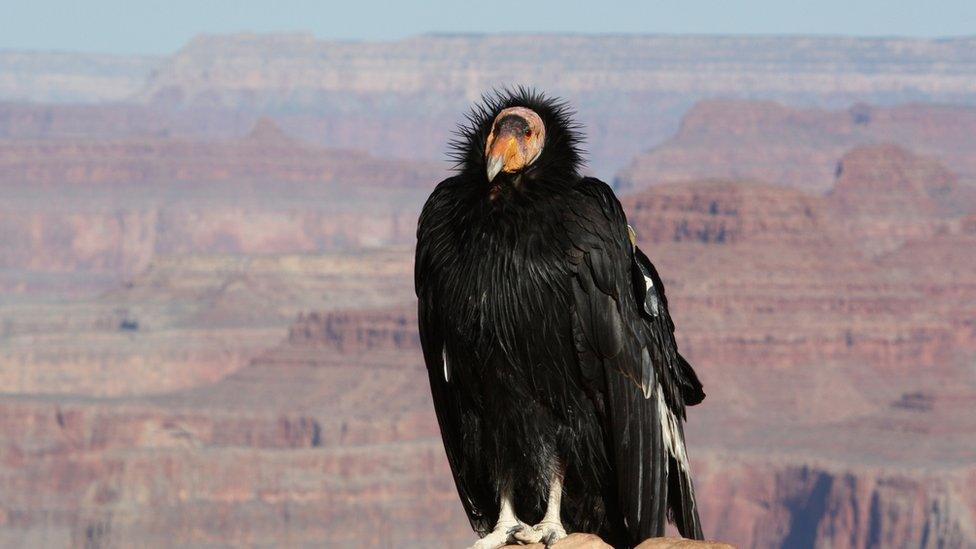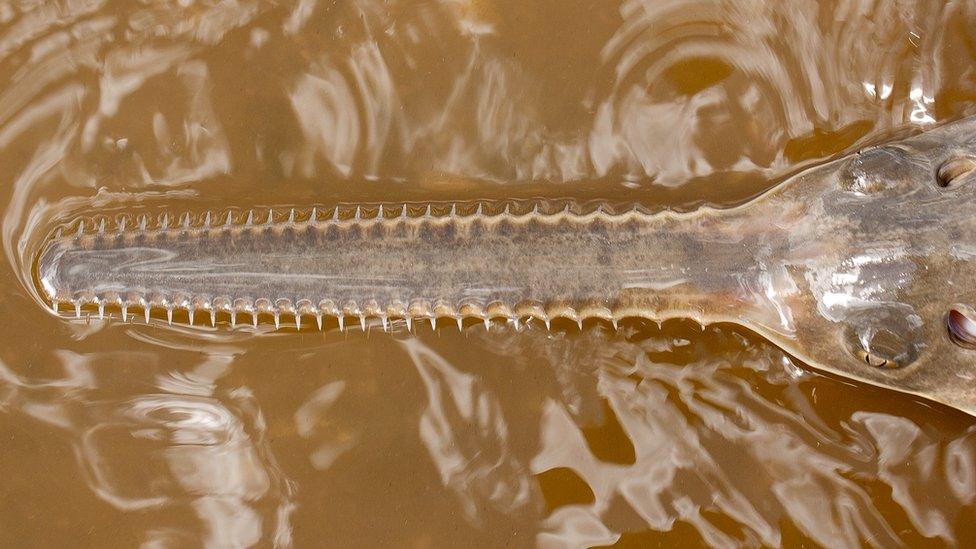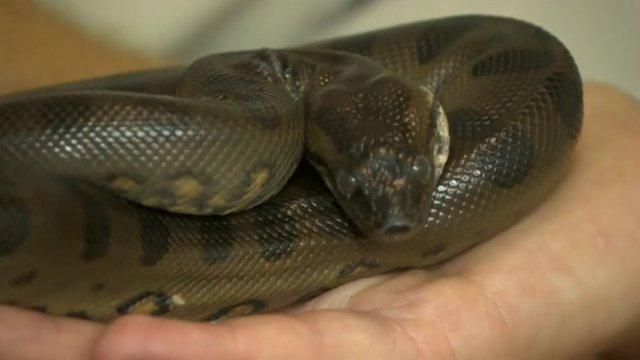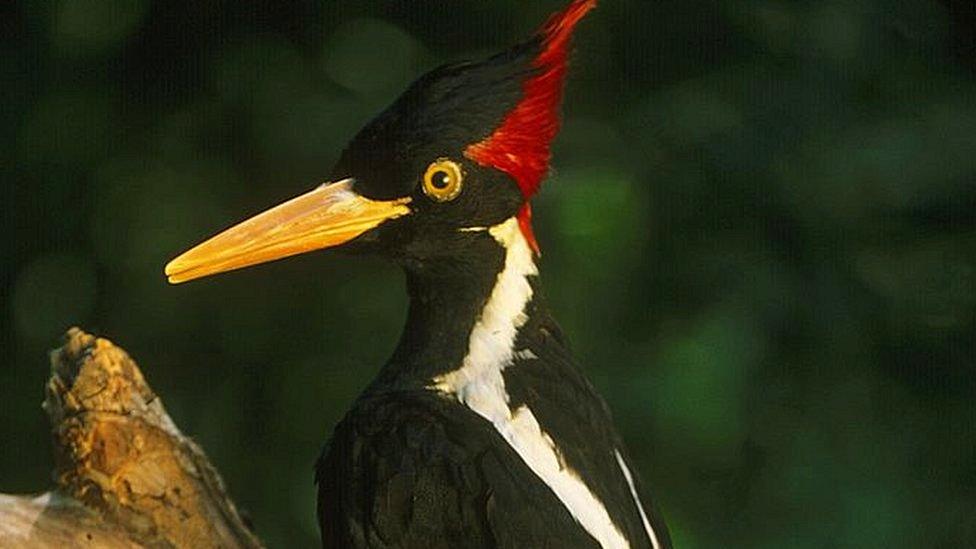California condors: Virgin births discovered in critically endangered birds
- Published

The study's co-author said it is "truly an amazing discovery"
US wildlife researchers have discovered that two California condors, a critically endangered bird, gave birth without any male genetic DNA.
The discovery that condors are capable of virgin births - formally called parthenogenesis or asexual reproduction - surprised scientists.
Virgin births have been recorded in other bird species, as well as lizards, snakes, sharks, rays and other fish.
Only about 500 California condors remain in the US south-west and Mexico.
In the 1980s, fewer than two dozen birds remained in the wild, but conservation efforts have boosted their numbers in recent years.
The peer-reviewed findings from San Diego Zoo Wildlife Alliance were published this week in the American Genetic Association's Journal of Heredity, external.
The researchers describe how routine genetic screenings of captive birds led to the discovery that two male chicks hatched in 2001 and 2009 were related to their mothers and had not inherited DNA from any father bird.
Allow X content?
This article contains content provided by X. We ask for your permission before anything is loaded, as they may be using cookies and other technologies. You may want to read X’s cookie policy, external and privacy policy, external before accepting. To view this content choose ‘accept and continue’.

All 467 male condors in the breeding pool were tested. What makes the case even more rare is that it is the first time that any bird species has had a virgin birth when males were present for breeding.
Parthenogenesis is an extremely rare event, but has been recorded in other species before. It happens when a cell in a female behaves like a sperm and fuses with an egg. It normally occurs in animal populations that have few or no breeding males.
"This is truly an amazing discovery," Oliver Ryder, the study's co-author and director of conservation genetics at San Diego Zoo Wildlife Alliance, said in a statement, external.
"We were not exactly looking for evidence of parthenogenesis, it just hit us in the face. We only confirmed it because of the normal genetic studies we do to prove parentage."
Unfortunately, both of the chicks have since died - one at age two in 2003 and the other in 2017 when it was seven.
Both mother condors previously had chicks that were bred in the traditional way.
One had 11 chicks, while the other, who had been paired with a male for 20 years, had 23 chicks. She reproduced twice more after the virgin birth.
Female anaconda has 'virgin birth'
Related topics
- Published1 June 2015

- Published21 August 2014

- Published29 September 2021
